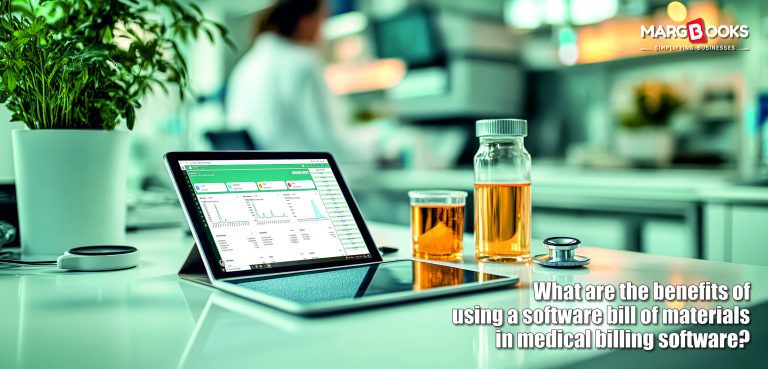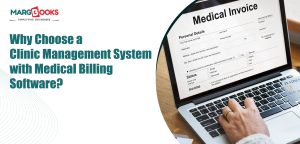In today’s digital-first healthcare ecosystem, where accuracy, compliance, and efficiency are paramount, software plays a critical role. Whether it’s streamlining patient data, generating invoices, or managing pharmacy inventory, healthcare software must be transparent, secure, and up to date. This is where a Software Bill of Materials (SBOM) steps in as a game changer especially when integrated into medical billing software and online medical store software.
But what exactly is a Software Bill of Materials, and why does it matter in healthcare tech? Let’s take a closer look.
What is a Software Bill of Materials (SBOM)?
A Software Bill of Materials, or SBOM, is essentially a detailed list of all the components, libraries, and dependencies that make up a piece of software. Think of it as a recipe—if software is the dish, the SBOM is the list of ingredients used to prepare it.
Just like you wouldn’t want unknown ingredients in your food, you don’t want unknown code in your software—especially when dealing with sensitive health and billing information. The SBOM ensures transparency, enabling developers and users to know exactly what’s inside the software they’re relying on.
Why is SBOM Crucial in Medical Billing Software?
Healthcare software, especially medical billing software, handles highly sensitive information like patient data, insurance details, prescriptions, and payment records. A small flaw or hidden vulnerability can lead to data breaches, billing errors, or even legal issues.
Here are the main reasons why integrating an SBOM into medical billing systems is beneficial:
1. Enhanced Security
- With cyberattacks on the rise, especially in the healthcare sector, having a detailed SBOM helps developers identify and patch vulnerabilities faster.
- If a particular open-source component is reported to have a security flaw, developers can quickly check whether that component exists in the system.
2. Regulatory Compliance
- Healthcare providers in India and across the globe must adhere to strict compliance standards.
- SBOM helps ensure that all software components meet regulatory requirements, whether it’s HIPAA (in the U.S.) or the upcoming Health Data Management Policy in India.
3. Simplifies Maintenance and Updates
- Knowing exactly what’s in the software makes it much easier to issue updates and patches.
- This is especially useful for products like MargBooks, a trusted name in medical billing software, which regularly updates features and security patches based on client feedback and regulatory needs.
4. Builds Trust and Transparency
- For healthcare professionals and online pharmacies using online medical store software, transparency is key.
- An SBOM ensures stakeholders that the software is built with secure, compliant, and reliable components.
Benefits of SBOM for Online Medical Store Software
SBOMs aren’t just limited to billing systems. They’re just as vital for online medical store software, which often includes features like inventory management, prescription uploads, automated restocking, and even payment gateways.
Here’s how SBOMs help in this context:
– Faster Vulnerability Detection
Online pharmacies deal with both patient records and financial transactions. An SBOM allows for real-time scanning of known vulnerabilities within any third-party module used in the software.
– Improved Supply Chain Security
Most medical store software depends on third-party APIs—be it for order tracking, drug info, or e-prescriptions. An SBOM tracks all these integrations, making it easy to spot potential threats in the software supply chain.
– Supports Customisation
Many pharmacies using software like MargBooks often customize their features. With an SBOM in place, developers can quickly assess how a change in one component might affect others, reducing downtime and development costs.
Real-Life Example: How MargBooks Benefits from SBOM
MargBooks, a well-known platform for medical and retail billing, incorporates modern practices like SBOM to keep its software secure and transparent.
Here’s how SBOM supports MargBooks:
- Timely updates: Developers get alerted about any obsolete or risky components.
- Easy troubleshooting: If there’s a bug, the team can quickly trace it back to a specific software component.
- Compliance made easy: With traceability and version control, MargBooks remains audit-ready at all times.
For small clinics and large hospitals alike, this level of integrity is invaluable.
The Future of Healthcare Tech: Built on SBOM
As more Indian healthcare providers move towards digitisation, from electronic health records to online drug sales, the role of SBOMs will only become more important. Governments, too, are taking notice. In fact, the Indian government has been pushing for better cybersecurity standards in healthcare tech, where SBOMs could soon become mandatory.
If you’re in the healthcare sector and using or planning to use medical billing software or online medical store software, make sure your provider follows SBOM practices. Ask them questions. Demand transparency. After all, your patients—and your reputation—deserve nothing less.
Final Thoughts
The benefits of integrating a software bill of materials into your healthcare software ecosystem are hard to ignore. From better security to easier compliance and smoother updates, SBOMs act as the foundation of trustworthy digital tools in the medical world.
With leading solutions like MargBooks already embracing SBOM practices, it’s clear that the future of healthcare technology in India is headed towards greater transparency, reliability, and efficiency.
Choose smart. Choose secure. Choose software that comes with a bill of materials.




